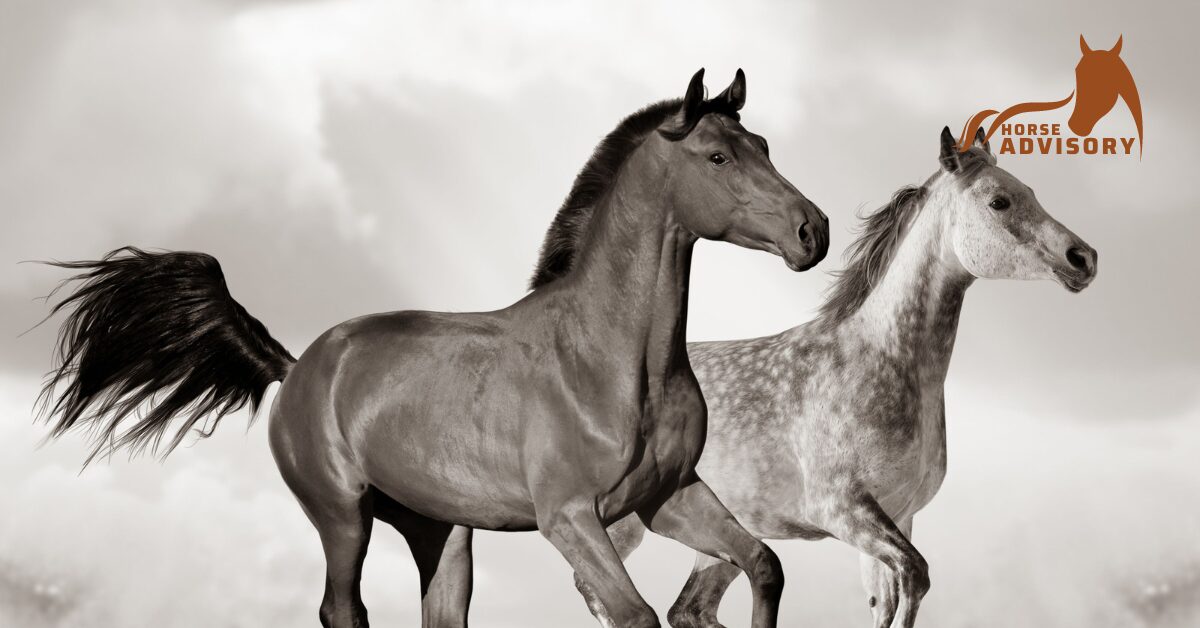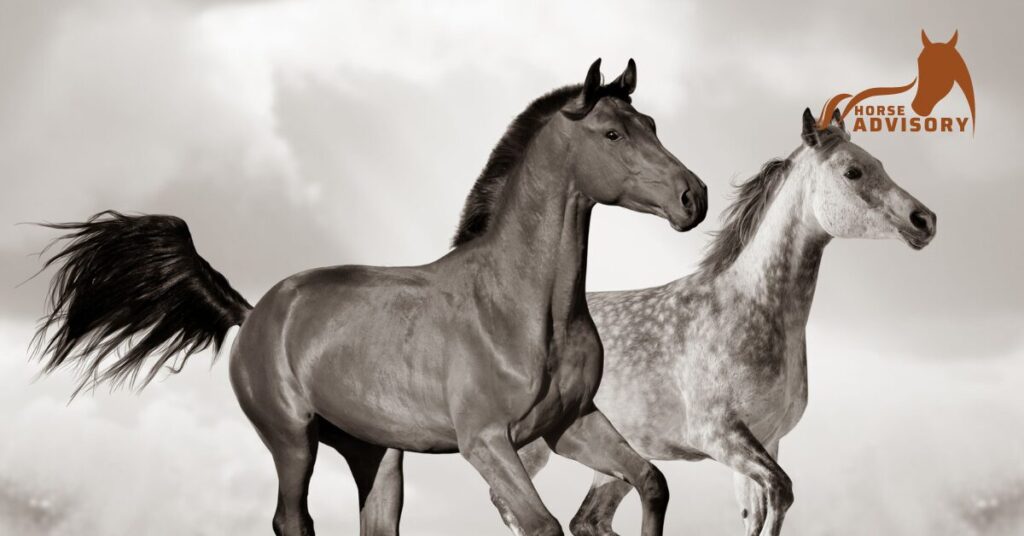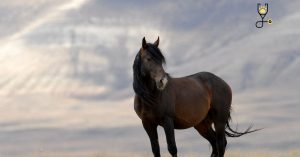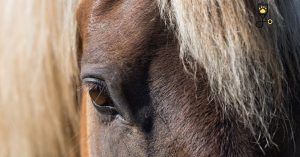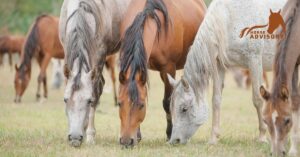The world of equine genetics is buzzing with exciting advancements, and Arabian horses, with their rich heritage and unique genetic make-up, are at the forefront of this revolution. These recent developments are not only enhancing our understanding of Arabian horse DNA but are also transforming breeding practices to ensure healthier, more robust horses for future generations. In this blog post, we will explore the latest breakthroughs in Arabian horse genetics, the implications of genetic testing, and how breeders are leveraging this information to improve the breed.
Latest Genetic Research and Breakthroughs
Recent advancements in genetic research have significantly expanded our understanding of the Arabian horse’s DNA, revealing valuable insights into the breed’s traits and performance capabilities. Scientists have successfully mapped key sections of the Arabian horse genome, offering breeders unprecedented tools to enhance specific characteristics and improve overall breed quality. These breakthroughs are transforming the breeding industry, providing a scientific foundation for more precise and informed breeding decisions.
1. Genetic Mapping of Traits:
One of the most significant achievements in recent years has been the mapping of the Arabian horse genome, allowing researchers to identify specific genes that influence critical traits like endurance, coat color, and temperament. This genetic information gives breeders the ability to select horses based on desired characteristics, such as stamina for endurance racing, a desirable coat color for show competitions, or a calm and trainable temperament for riding or performance.
2. Identification of Genetic Markers for Performance Traits:
A major breakthrough has been the discovery of genetic markers linked to performance traits, particularly those related to endurance. Arabian horses are celebrated for their extraordinary stamina, a trait that has made them dominant in endurance racing for centuries. By identifying the genes responsible for endurance, breeders can now make more informed decisions when pairing horses, aiming to produce offspring with enhanced stamina, resilience, and athletic performance. This scientific approach allows breeders to refine and amplify performance traits, helping to maintain the Arabian horse’s leading role in competitive endurance events.
3. Reducing Hereditary Diseases:
Genetic research has also focused on identifying hereditary diseases that may affect Arabian horses, such as Severe Combined Immunodeficiency (SCID) and Cerebellar Abiotrophy (CA). Through genetic testing, breeders can screen potential breeding stock for these and other genetic disorders, significantly reducing the likelihood of passing them on to future generations. This ensures healthier, stronger foals and helps preserve the overall well-being of the breed.
4. Enhancing Genetic Diversity:
Another important application of genetic research is promoting genetic diversity within breeding programs. Inbreeding can lead to a higher incidence of genetic disorders and reduced vigor in horses. By analyzing the genetic makeup of individual horses, breeders can make informed choices that increase genetic diversity, preserving the health and vitality of the Arabian breed over the long term.
5. Practical Applications for Breeders:
Armed with this new genetic information, breeders can now apply it in several practical ways. For example, they can:
- Use genetic testing to select breeding pairs with complementary genes, ensuring that desirable traits are passed on to their offspring.
- Avoid breeding horses that carry genes for hereditary diseases, leading to healthier foals.
- Optimize their breeding programs to focus on specific performance traits, such as endurance, speed, or temperament, with greater confidence.
- Improve the long-term sustainability of their breeding operations by preserving genetic diversity and minimizing the risk of inbreeding.

Impact on Breeding Practices
Recent advances in genetic research are revolutionizing traditional breeding practices, providing breeders with powerful tools to enhance the quality and performance of Arabian horses. Two significant developments—genomic selection and genetic testing—are reshaping how breeding decisions are made, leading to more informed and effective practices.
1. Genomic Selection:
Genomic selection is a cutting-edge method that leverages genetic information to predict a horse’s potential for breeding success. Unlike traditional breeding methods, which often rely on observable traits and performance history, genomic selection uses detailed genetic data to estimate the likelihood of a foal inheriting desirable traits. This approach involves analyzing a horse’s DNA to identify genetic markers associated with key attributes such as endurance, speed, and conformation.
By employing genomic selection, breeders can:
- Reduce Guesswork: Traditional breeding often involves a degree of uncertainty regarding which traits will be passed on to the offspring. Genomic selection minimizes this uncertainty by providing a more accurate prediction of a foal’s potential traits and capabilities.
- Optimize Breeding Decisions: With precise genetic information, breeders can make more informed decisions when selecting mating pairs, ensuring that the resulting foals are more likely to possess the desired characteristics.
- Enhance Breeding Efficiency: By focusing on genetic potential, breeders can improve the efficiency of their breeding programs, producing high-quality horses with fewer trials and errors.
2. Genetic Testing for Hereditary Diseases:
Genetic testing has become an essential tool for managing hereditary diseases in Arabian horses. The breed is known to be predisposed to certain genetic disorders, such as Severe Combined Immunodeficiency (SCID) and Cerebellar Abiotrophy (CA). These conditions can have serious health implications for affected horses, making it crucial to identify and manage carriers effectively.
With the availability of genetic tests, breeders can:
- Identify Carriers: Genetic tests can reveal whether a horse carries genes associated with hereditary diseases. By identifying carriers, breeders can avoid pairing horses that are both carriers of the same condition, thereby reducing the risk of producing affected foals.
- Make Informed Breeding Choices: Armed with knowledge of a horse’s genetic status, breeders can make more informed decisions about which horses to breed, focusing on those that are clear of genetic disorders or are carriers that can be managed appropriately.
- Improve Breed Health: Proactively managing hereditary diseases through genetic testing enhances the overall health and well-being of the breed. It leads to healthier foals and reduces the prevalence of genetic disorders in the population.
Implications of Genetic Testing
Genetic testing has profound implications for the breeding and management of Arabian horses, offering a range of benefits that enhance both the health and performance of the breed. By providing detailed insights into a horse’s genetic makeup, genetic testing enables breeders to make more informed decisions, leading to significant improvements in breed quality and sustainability. Here are the key implications of genetic testing for Arabian horses:
1. Ensuring Health and Performance:
Genetic testing allows breeders to screen for both health and performance traits, leading to several important outcomes:
- Eliminating Genetic Defects: Testing can identify carriers of undesirable genetic conditions such as Severe Combined Immunodeficiency (SCID) and Cerebellar Abiotrophy (CA). By avoiding the breeding of horses that carry these genetic defects, breeders can reduce the incidence of these disorders in the breed, ensuring healthier and more robust offspring.
- Enhancing Performance Traits: Genetic testing can also reveal markers associated with desirable performance traits such as endurance, speed, and agility. Breeders can use this information to select horses that are more likely to excel in specific disciplines, improving the overall performance and competitiveness of the breed.
2. Preserving Rare and Valuable Traits:
Genetic testing helps breeders identify and preserve rare and valuable traits within the Arabian horse population:
- Conserving Unique Characteristics: By mapping the genetic lines that possess unique or rare traits, breeders can develop targeted breeding strategies to preserve these characteristics. This ensures that valuable attributes, whether they are related to conformation, coat color, or specific performance abilities, are maintained in future generations.
- Maintaining Genetic Diversity: Preserving genetic diversity is crucial for the breed’s long-term adaptability and resilience. Genetic testing allows breeders to manage and maintain this diversity by avoiding excessive inbreeding and ensuring a broad genetic base. This helps prevent the genetic dilution of desirable traits and reduces the risk of hereditary health issues.
3. Optimizing Breeding Programs:
Genetic testing enables more precise and effective breeding programs:
- Informed Pairing Decisions: With detailed genetic information, breeders can make more informed decisions when selecting mating pairs. This leads to better predictions of the offspring’s potential traits, improving the likelihood of achieving specific breeding goals and enhancing overall program success.
- Reducing Trial and Error: Traditional breeding methods often involve a degree of trial and error. Genetic testing reduces this uncertainty by providing clear data on which genetic combinations are likely to yield the desired traits, leading to more efficient and successful breeding outcomes.
4. Improving Breed Longevity and Vitality:
Genetic testing contributes to the overall longevity and vitality of the Arabian breed:
- Healthier Horses: By identifying and managing genetic risks, breeders can produce healthier horses with fewer genetic disorders. This enhances the breed’s overall health and longevity, ensuring that Arabian horses continue to thrive.
- Sustainable Breeding Practices: Genetic testing supports sustainable breeding practices by promoting responsible breeding decisions. This helps maintain the breed’s quality and vitality over the long term, aligning with conservation goals and preserving the breed’s unique attributes.

Notable Studies and Projects
Several significant studies and projects have advanced our understanding of Arabian horse genetics, providing valuable insights into breed-specific traits and genetic disorders. These initiatives have laid the groundwork for more precise breeding practices and the development of practical tools for breeders. Here are some notable studies and projects:
1. The Equine Genome Project:
The Equine Genome Project is a major international collaborative effort aimed at mapping the equine genome. Launched in the early 2000s, this project has been instrumental in providing a comprehensive genetic map of horses, including Arabians. Key contributions of the project include:
- Genetic Mapping: The project has identified and mapped genes associated with various traits and disorders in horses. This foundational work enables researchers to study breed-specific genetic variations more effectively.
- Breed-Specific Research: With the genome mapped, researchers can now focus on breed-specific studies, including those targeting Arabian horses. This has led to a deeper understanding of traits unique to the Arabian breed, such as endurance and coat color.
2. Arabian Horse Genome Study by the University of Arizona:
The University of Arizona has conducted significant research into the genetics of Arabian horses, particularly focusing on their endurance capabilities. Notable aspects of this study include:
- Performance Traits: Researchers have investigated the genetic basis of endurance and stamina, key traits for Arabian horses. This research has identified specific genetic markers associated with these traits, aiding in the selection of breeding stock with enhanced performance capabilities.
- Genetic Variants: The study has helped identify genetic variants that contribute to the Arabian horse’s unique physical and behavioral characteristics, providing valuable information for breeders aiming to enhance specific traits.
3. The Horse Genome Project at the Broad Institute:
The Broad Institute, in collaboration with other research institutions, has contributed to the broader understanding of horse genetics through its Horse Genome Project. This project has provided:
- Genetic Resources: Access to extensive genetic resources, including detailed information about the equine genome. This includes data relevant to Arabian horses, supporting further research into breed-specific genetics.
- Disease Research: Insights into the genetic underpinnings of equine diseases, including those affecting Arabian horses. This research supports the development of genetic tests for hereditary conditions.
4. Research by the Veterinary Genetics Laboratory (VGL) at UC Davis:
The Veterinary Genetics Laboratory (VGL) at the University of California, Davis, has been at the forefront of developing genetic tests for horses, including Arabians. Key contributions include:
- Genetic Testing: Development of tests for specific genetic disorders prevalent in Arabian horses, such as Severe Combined Immunodeficiency (SCID) and Cerebellar Abiotrophy (CA). These tests allow breeders to screen for carriers and manage genetic risks effectively.
- Trait Analysis: Research into genetic markers associated with various traits, including coat color and conformation. This supports breeders in selecting horses with desirable characteristics.
5. The Arabian Horse Association’s Genetic Research Initiatives:
The Arabian Horse Association has supported several genetic research initiatives aimed at improving the breed. These efforts include:
- Breed-Specific Studies: Funding and facilitating research into genetic traits specific to Arabian horses, including those related to health, performance, and conformation.
- Educational Resources: Providing breeders with access to the latest genetic research and tools, helping them make informed breeding decisions based on scientific data.
Conclusion
The recent advances in Arabian horse genetics are revolutionizing the way we approach breeding and health management within this esteemed breed. By harnessing the power of genetic research and testing, breeders are equipped to make smarter, more informed decisions that ensure the future of the Arabian horse is as illustrious as its past. As we continue to uncover the secrets of the Arabian horse genome, the potential for innovation in breeding practices and health management is limitless, offering exciting prospects for equine enthusiasts and breeders alike.
